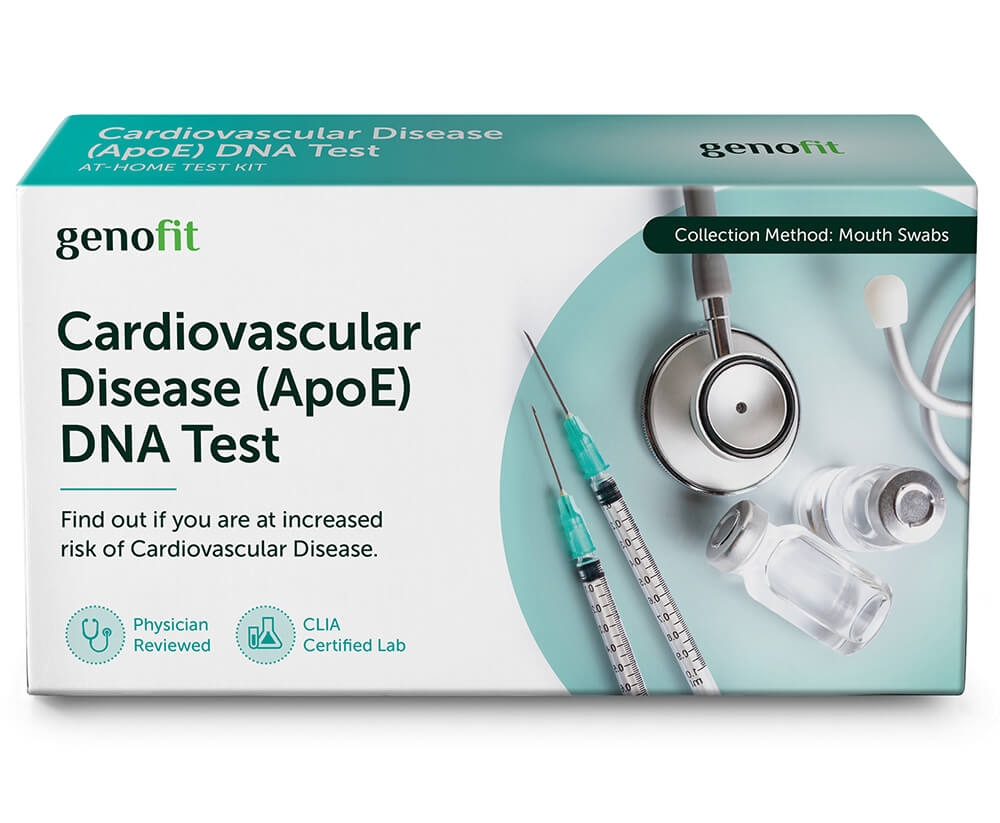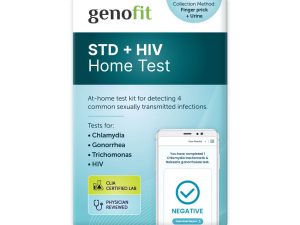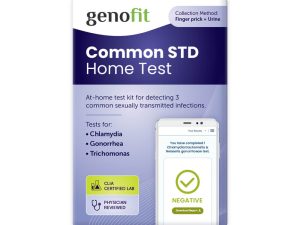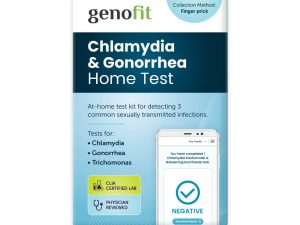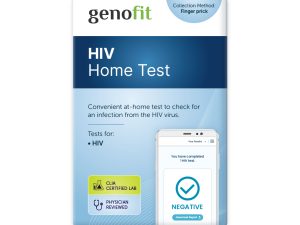Cardiovascular Disease (ApoE) DNA Test
The APOE gene influences both your risk of a heart attack, and your best approach to lower cholesterol levels. Find out your risk and the best treatment option for you.
![]() Detects variants of the APOE gene
Detects variants of the APOE gene
![]() Buccal swab sample collection
Buccal swab sample collection
$195.00
Free Shipping • FSA / HSA accepted
Free shipping on all orders within the U.S.
What you get with this test
Detailed Description
Cardiovascular diseases (CVD) include heart attack and stroke. Maintaining normal cholesterol levels is essential for the prevention of CVD.
LDL-cholesterol is often referred to as the “bad” cholesterol. It collects in the walls of your blood vessels, where it can cause blockages and scarring known as atherosclerosis. Increased LDL-cholesterol levels put you at greater risk for CVD.
Other contributing factors to CVD include elevated triglycerides (the main form of storage fat in our body) and high levels of other low-density lipoproteins (e.g. beta-very low-density lipoproteins).
Hyperlipoproteinemia type III is one disease characterized by elevated triglycerides and beta-very low-density lipoproteins. It is associated with an early onset of peripheral vascular disease and CVD.
The Genetics
The APOE gene is a major genetic risk factor involved in CVD. It can also influence how well you will respond to dietary changes and blood pressure lowering medications to control your cholesterol levels. It encodes Apolipoprotein E (ApoE), a protein involved in the production, delivery, and utilization of cholesterol in the body. A simple mouth swab is all we need to determine your APOE genotype.
Different Versions of the APOE Gene
There are several different versions or alleles of APOE. The three most common alleles are known as e2, e3 and e4. Each of these alleles produces a slightly different version of the ApoE protein.
- e3: The most common, neutral allele. No increased or decreased risk of cardiovascular disease
- e4: Associated with an increased risk of high LDL-cholesterol levels and atherosclerosis
- e2: Associated with lower LDL-cholesterol levels in the blood, but increased risk of high blood sugar and hyperlipoproteinemia type III, leading to a higher risk of cardiovascular disease
Discover More
How Does Your APOE Genotype Influence Your Risk of Cardiovascular Disease?
- Two copies of the e3 allele: Not at increased risk of CVD
- One e3 allele and one e2 allele: Not at increased risk of CVD
- Two copies of the e2 allele: Lower LDL-cholesterol but increased risk of hyperlipoproteinemia type III, which can contribute towards CVD
- One or two copies of the e4 allele: Elevated LDL-cholesterol and increased risk of CVD
Different versions of the APOE gene will also affect how a person responds to diet and statins (cholesterol-lowering drugs).
APOE e3/e4 and e4/e4 genotypes:
A low-fat diet is recommended for people with the e3/e4 and e4/e4 genotypes, as they are not able to metabolize fats very effectively. These individuals do not respond very well to statins.
APOE e2/e2 or e2/e3 genotypes:
Individuals with the e2/e2 or e2/e3 genotype are able to metabolize fats more efficiently, but have less effective metabolism of carbohydrates. They have a better response to statins.
CLIA Certified
All Genofit tests are guaranteed to be processed by a CLIA certified laboratory–the same type of certification as hospital laboratories.
Physician Reviewed
Genofit tests are reviewed and approved by a third-party independent physician licensed to practice within your state.
HIPAA Compliant
Genofit takes measures to guarantee your privacy. Your personal data is securely stored and will not shared with any third-party without your permission.
Get Started in 3 Easy Steps
1. Activate Kit
2. Collect & Mail
3. View Results
Get Started in 3 Easy Steps
1. Activate Kit
Activate your kit online at genofit.com by entering the unique activation code found inside your kit.
2. Collect & Mail Sample
Simply collect your sample at home, then mail your sample directly to the lab with free return shipping.
3. View Results
Receive your results within 5-7 business days after the lab receives your kit.
FAQ's
Here are the answers to the most frequently asked questions about this test.
More ways to explore your health
-
STD + HIV Test
$149.00Add to cartConvenient at-home test to check for four common sexually transmitted diseases.
-
Common STD Test
$99.00Add to cartConvenient at-home test to check for three common sexually transmitted diseases (STDs).
-
Chlamydia & Gonorrhea Test
$79.00Add to cartConvenient at-home test to check for chlamydia and gonorrhea infections.

